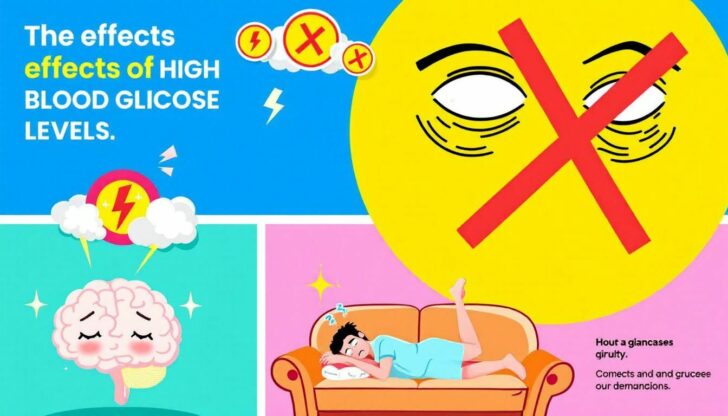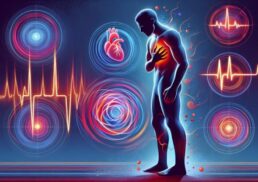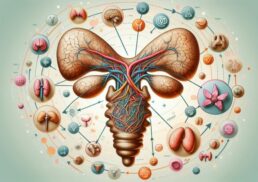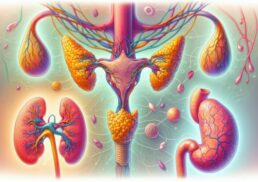Wondering if you might have diabetes? Knowing the symptoms is crucial for early detection and effective management. In this article, we’ll answer the question ‘diabetes what are the symptoms’ and guide you through the specific signs to look out for.
Table of Contents
Key Takeaways
Early recognition of diabetes symptoms such as increased thirst, frequent urination, and fatigue is crucial for effective management and improved health outcomes.
Symptoms vary by type; Type 1 diabetes typically shows rapid onset symptoms, while Type 2 diabetes symptoms develop gradually and may be overlooked.
Regular monitoring of blood glucose levels and consultations with healthcare professionals are essential for preventing complications associated with untreated diabetes.
Recognizing Diabetes Symptoms

Identifying the symptoms of diabetes early is essential for timely diagnosis and effective management. Common diabetes symptoms include increased thirst, frequent urination, and fatigue. These symptoms arise because the body either fails to produce enough insulin or does not use it properly, leading to high blood sugar levels. When sugar builds up in the bloodstream, it can cause a variety of health issues.
The type of diabetes and how quickly symptoms develop play a significant role in the symptoms experienced. For instance, Type 1 diabetes often presents with rapid onset of symptoms, while Type 2 diabetes develops gradually over years. Genetic and environmental factors also contribute to the development of both types.
Comprehending these symptoms and their origins is key to managing diabetes well. Whether it’s frequent urination disrupting your day or persistent fatigue making daily tasks difficult, recognizing these signs early can lead to better health outcomes.
Type 1 Diabetes Symptoms
Type 1 diabetes typically manifests quickly, unlike the slow progression of Type 2 diabetes. Common symptoms include frequent urination, increased thirst, mood changes, and unexplained weight loss. These symptoms stem from the body’s failure to produce insulin, causing elevated blood sugar levels.
In severe cases, untreated Type 1 diabetes can lead to diabetic ketoacidosis, a life-threatening condition marked by rapid breathing, fruity-smelling breath, and stomach pain. Immediate medical attention is necessary if these symptoms appear to prevent severe health issues.
Type 2 Diabetes Symptoms
Type 2 diabetes symptoms develop slowly over years, often going unnoticed, which can lead to developing diabetes. This slow progression can make it challenging to recognize the condition early. Common symptoms include increased thirst, frequent urination, and fatigue.
Many people with Type 2 diabetes and diabetes mellitus may not have symptoms or may only experience mild symptoms, which can easily be overlooked. These symptoms are caused by the body’s inability to use insulin properly, leading to insulin resistance and excess glucose in the blood.
Detecting these symptoms early is crucial for effective Type 2 diabetes management. If you notice persistent fatigue or frequent trips to the bathroom, it’s worth consulting a healthcare professional for blood sugar testing.
Gestational Diabetes Symptoms
Gestational diabetes, which occurs during pregnancy, often presents no obvious symptoms, making awareness vital for expectant mothers. Due to the lack of noticeable symptoms, screening for gestational diabetes is advised between 24 and 28 weeks of pregnancy.
When symptoms do appear, they may include mild increased thirst and frequent urination. Because these symptoms are common in pregnancy, regular screenings are important to detect and manage gestational diabetes early.
Common Early Signs of Diabetes
Subtle early signs of diabetes are vital for prompt diagnosis and treatment. Blurry vision is one such sign, occurring when high blood sugar causes swelling in the eye’s lens, making it hard to focus. Another early sign is slow-healing sores, often reported by individuals with Type 2 diabetes, which are linked to high blood sugar levels disrupting blood vessels and circulation.
Frequent infections are another early symptom associated with Type 2 diabetes, indicating the body’s weakened ability to fight off illness. Consult a doctor for blood sugar testing if you notice frequent urination, excessive thirst, unexplained weight loss, or blurry vision.
Numbness in the hands or feet, persistent fatigue, and slow-healing sores are also significant symptoms that should prompt medical advice. Identifying these early signs enables timely intervention and improved diabetes management.
Learn more, Early Signs and Symptoms of Diabetes.
Symptoms of High Blood Glucose Levels

Hyperglycemia, or high blood glucose levels, can present various symptoms. Excessive thirst that persists even after drinking large amounts of water is a common sign. Frequent urination often accompanies this, especially in individuals with Type 1 diabetes.
Other symptoms include dry mouth and slow healing of sores, which are associated with high blood sugar levels. Identifying these symptoms is crucial for effective blood glucose management and preventing long-term complications.
Symptoms of Low Blood Sugar (Hypoglycemia)
Hypoglycemia refers to a condition where blood glucose levels drop significantly. Common symptoms include:
shaking
sweating
a fast heartbeat
confusion
These symptoms can arise suddenly and may become severe without prompt attention.
In severe cases, hypoglycemia can lead to drowsiness, confusion, seizures, or unresponsiveness. People with recurrent hypoglycemia may develop a lack of warning signs, increasing the risk of severe episodes. Regular monitoring of blood glucose levels can help prevent these dangerous episodes.
Potential Complications from Untreated Diabetes
Neglected diabetes can result in several serious health complications. People with diabetes have a significantly higher risk factors of heart disease. They are up to five times more likely to experience a stroke as well. The elevated risk of cardiovascular diseases can lead to potentially life-threatening events.
Chronic nerve damage is another severe complication, often indicated by numbness or tingling in the extremities. Vision problems, including blindness, can occur due to untreated diabetes, primarily from a condition known as diabetic retinopathy.
Kidney damage is also a major concern, potentially leading to the need for dialysis in severe cases. These complications underscore the need for timely treatment and effective diabetes management to prevent serious health issues.
Monitoring Blood Glucose Levels
Regular monitoring of blood glucose is essential for managing diabetes by identifying daily fluctuations and patterns. Knowing how diet, medication, and exercise affect blood sugar levels can guide better management decisions.
Most blood glucose meters store readings, facilitating easier tracking and discussions with healthcare providers. This regular blood glucose monitoring is crucial for maintaining optimal blood glucose levels and preventing diabetes complications, ultimately helping to manage blood glucose level effectively.
When to See a Doctor
Recognizing when to consult a doctor is crucial for effective diabetes management. For a minor foot injury that doesn’t heal, seeing your GP is important, as diabetes-related foot problems include ulcers and infections from minor cuts and grazes.
Individuals with diabetes aged 12 or over should have annual eye screenings for diabetic retinopathy to prevent vision problems. Additionally, feet should be examined annually for proper diabetes management.
Monitoring blood glucose levels in Type 2 diabetes patients should occur every two to six months. Patients should inquire about the potential effects of medications on diabetes management, as some antibiotics and statins can impact the pancreas or insulin function.
Summary
In summary, recognizing the symptoms of diabetes is the first step towards effective management and preventing complications. From the rapid onset of Type 1 diabetes symptoms to the gradual development seen in Type 2 diabetes, understanding these signs can lead to early diagnosis and better health outcomes.
Regular blood glucose monitoring and knowing when to seek medical advice are crucial components of managing diabetes. By staying informed and proactive, you can take control of your health and ensure a better quality of life.
Frequently Asked Questions
What are the common symptoms of diabetes?
Common symptoms of diabetes include increased thirst, frequent urination, and fatigue. If you experience these symptoms, it is advisable to consult a healthcare professional for further evaluation.
How quickly do symptoms of type 1 diabetes appear?
Symptoms of type 1 diabetes usually manifest quickly, often developing over a matter of days or weeks. It is important to recognize these signs early for effective management.
Are there any symptoms for gestational diabetes?
Gestational diabetes typically presents with no obvious symptoms, but you may experience mild thirst and frequent urination. It’s important to monitor your health, as these signs can indicate the condition.
What are potential complications of untreated diabetes?
Untreated diabetes can result in serious complications such as heart disease, nerve damage, vision impairment, and kidney damage. It is essential to manage diabetes effectively to prevent these life-altering conditions.
Why is regular blood glucose monitoring important?
Regular blood glucose monitoring is essential for effectively managing diabetes, as it reveals patterns in blood sugar levels that inform better management decisions. This proactive approach enables individuals to maintain optimal health and prevent complications.









